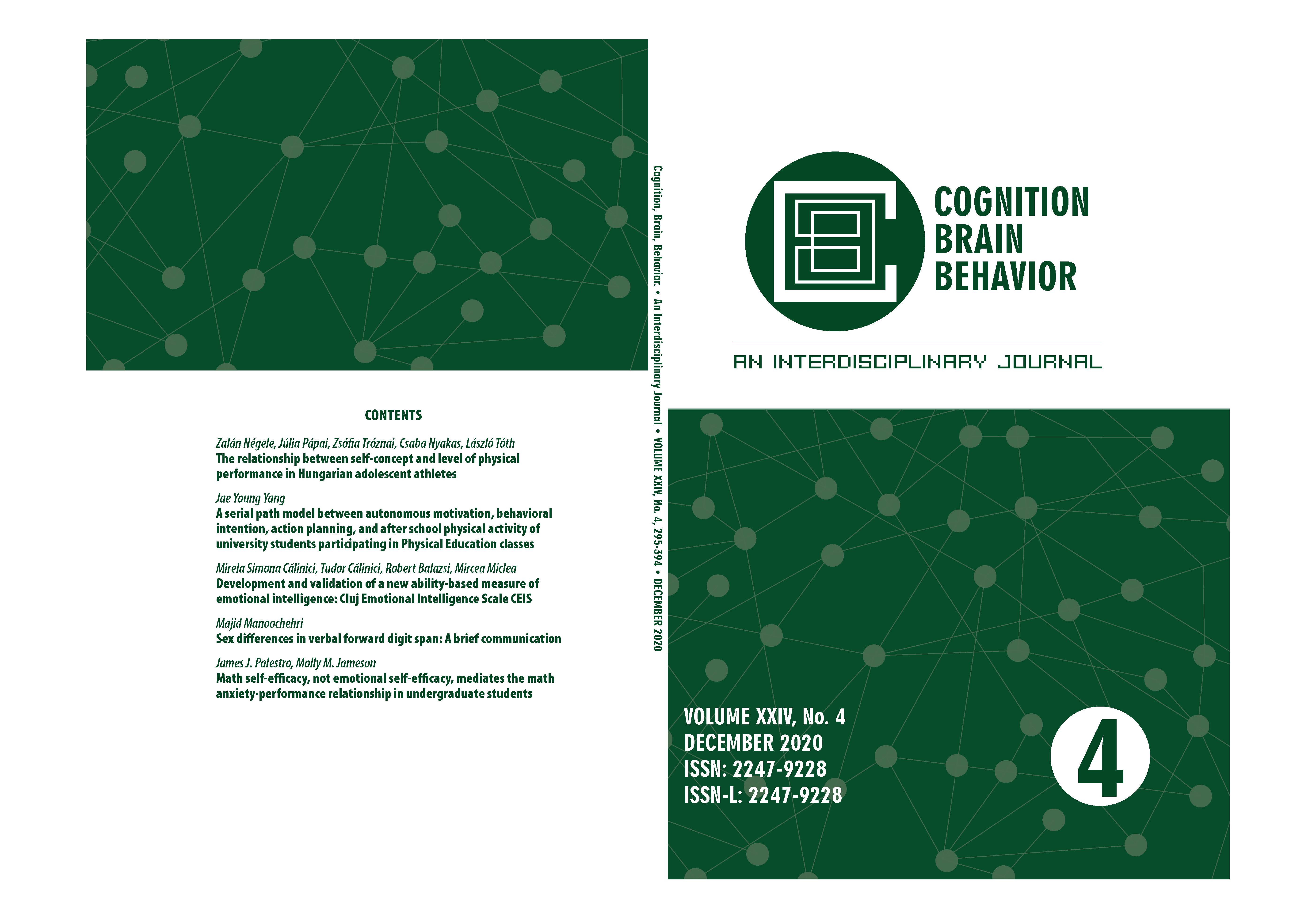The relationship between self-concept and level of physical performance in Hungarian adolescent athletes
The relationship between self-concept and level of physical performance in Hungarian adolescent athletes
Author(s): Zalán Négele, Júlia Pápai, Zsófia Tróznai, Csaba Nyakas, László TóthSubject(s): Gender Studies, Cognitive Psychology, Developmental Psychology, Methodology and research technology, Sports Studies
Published by: Editura Asociației de Științe Cognitive din România (ASCR)
Keywords: body image; self-concept; male and female adolescents;
Summary/Abstract: One’s self-concept is the representation of one’s self-knowledge developing during physical and mental maturation. It has unquestionable importance in sport performance as a motivational factor. This study assessed and analyzed the self- concept of secondary students aged 14 to 18 assigned to three groups of elite athletes, non-elite athletes and non-athletes. The research focused on the following questions: (1) Are there any differences between males’ and females’ self-concept? (2) Are there any differences in various components of the self-concept according to the level of physical performance? Components of the self-concept were assessed with the Tennessee Self-Concept Scale. Gender differences were tested by independent samples t tests and the effects of athletic activity and gender on various self-concept components by a multivariate analysis of variance. The results showed that males had a more positive self-concept than females. Regarding the level of athletic activity, non-athletes reported the least positive self-concept in both genders. According to the level of athletic performance, no difference was found between the three male groups, while the most positive self concept was clearly reported by non-elite athletes among females. The multivariate analysis of variance revealed that both gender and the level of athletic activity had an effect on self-concept components. Finally, the findings show that an optimally positive self-concept enhances performance in everyday life as well as in sports.
Journal: Cognition, Brain, Behavior. An Interdisciplinary Journal
- Issue Year: XXIV/2020
- Issue No: 4
- Page Range: 295-313
- Page Count: 20
- Language: English
- Content File-PDF

